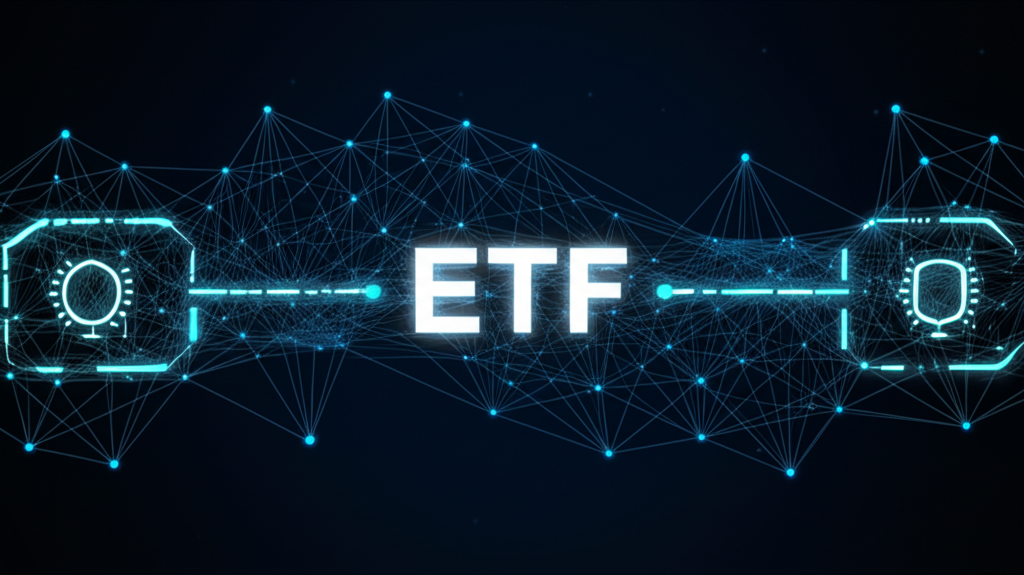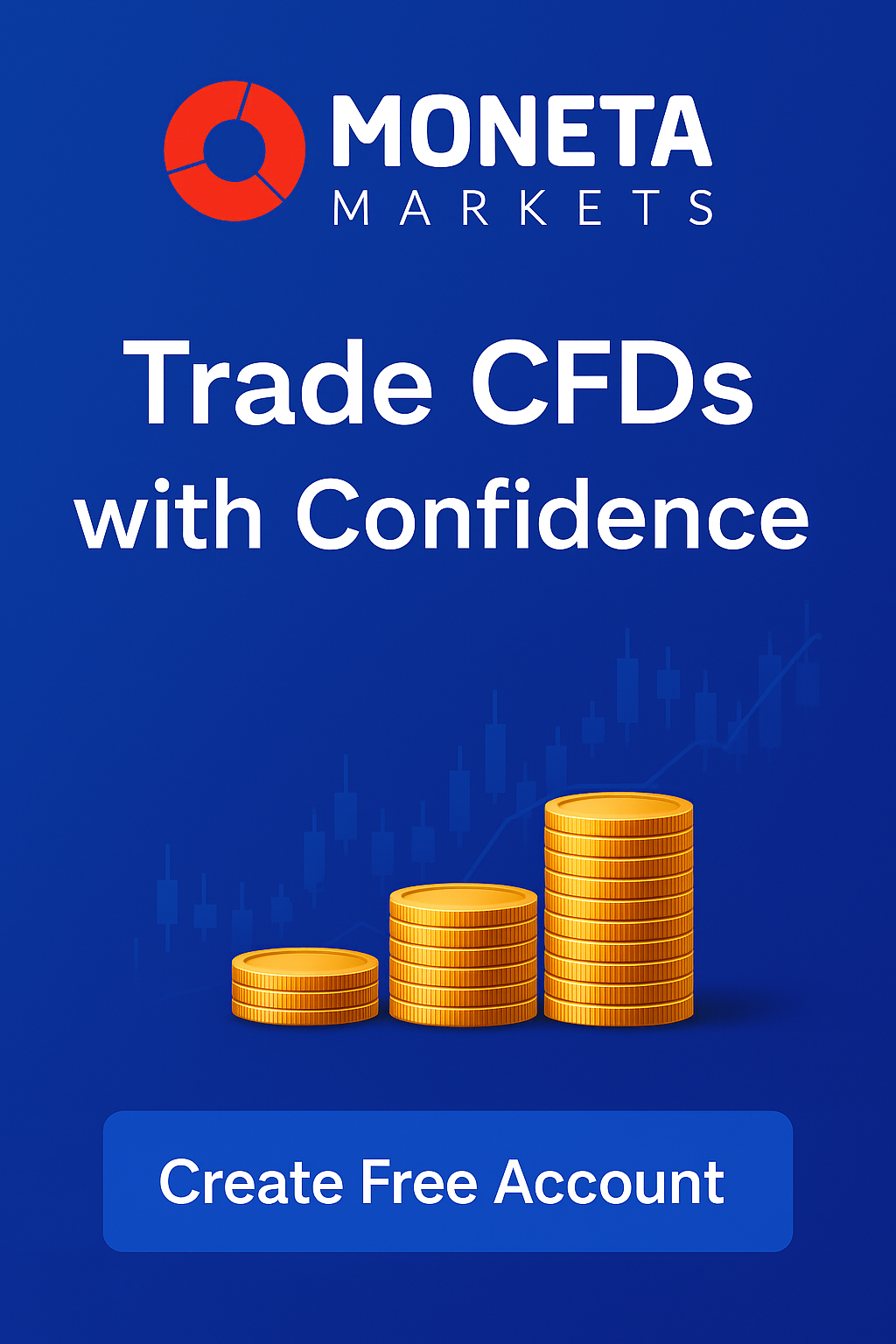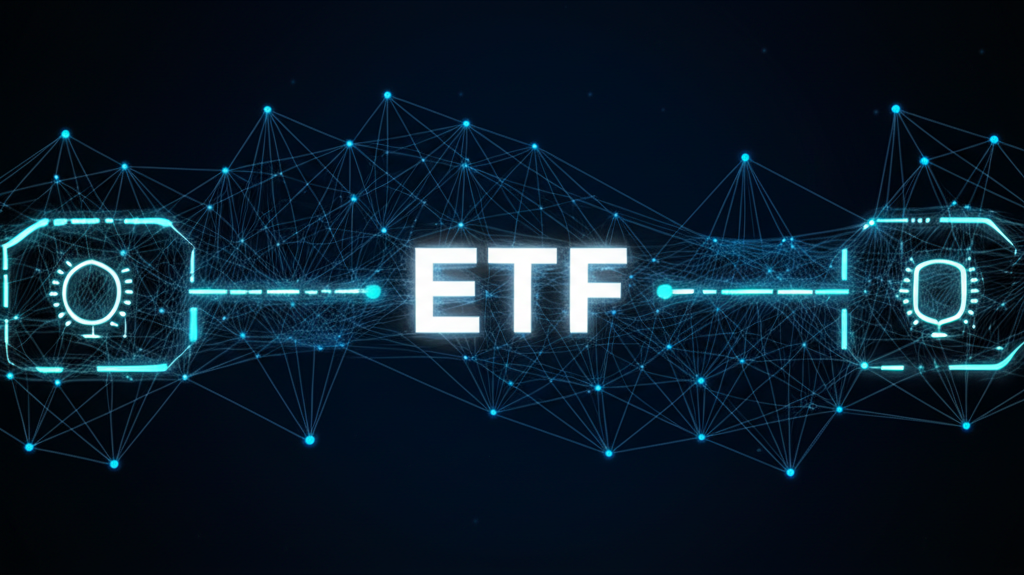Introduction: Decoding Blockchain ETFs for United States Investors in 2025
The investment world for digital assets keeps shifting quickly in 2025, creating smart options that everyday US investors can actually use. Blockchain exchange-traded funds, or ETFs, stand out as one of the smartest ways to get involved. These products, which fall under strict oversight, let you tap into blockchain tech and cryptocurrencies without dealing with the headaches of owning them outright. This guide focuses on US investors, covering the specific rules here, the chances in the market, and clear steps to add these ETFs to your mix of investments.

If you’ve got experience building portfolios and want to branch out, or if you’re just starting and curious about digital assets through something you already know, like ETFs, getting a handle on these is key. In the sections ahead, we’ll break down how they function, what they bring to the table, the downsides to watch for, and real-world tips to guide your choices in the fast-moving US scene.

As 2025 gets underway, blockchain stands as a game-changer across industries like finance, supply chains, and beyond. What used to feel like a fringe area for digital assets now feels more like the norm for US investors, thanks to clearer rules and the growth of blockchain ETFs. These funds give you a clean, watched-over path to the upside in this space, often spreading your bet across different parts of it. You’ll walk away from this with the tools to grasp these investments and weave them into your strategy amid the US financial changes.
What Are Blockchain ETFs and How Do They Work?
Blockchain ETFs boil down to funds you can trade on regular stock markets, built to follow how companies or assets tied to blockchain perform. They skip the direct ownership of cryptocurrencies, fitting neatly into the systems US investors already trust and follow the rules for.
Defining Blockchain and Crypto ETFs for US Markets
Blockchain serves as a shared, secure ledger that powers coins like Bitcoin and Ethereum, handling records in a way that’s open, tamper-proof, and spread out. A blockchain ETF usually puts money into businesses that build or use this tech-think miners who secure networks, makers of the gear they need, coders creating apps, or banks testing it for smoother transactions.
Crypto ETFs take a different angle, aiming to mirror the value of specific cryptocurrencies. Regulations in the US make this split important. The SEC has moved slowly on funds that hold the actual coins, but things picked up in 2024 with approvals for spot Bitcoin ETFs. That shift, detailed in the SEC’s early 2024 announcement, opened doors, and by 2025, spot Ethereum ETFs look likely, giving US folks more ways to join in without as many hurdles.
The Mechanics of Blockchain ETF Investing
Like other ETFs, these work by having managers oversee a collection of related investments, either hands-on or by matching an index. Your shares represent a piece of that collection-stocks or contracts linked to blockchain-not the tech itself. Here’s what that setup delivers:
- Diversification: A spread across various companies in the field helps buffer against any one flop.
- Liquidity: Trade shares all day on big US exchanges, so getting in or out stays simple.
- Professional Management: Experts do the heavy lifting on picks and adjustments, saving you time and effort.
- Regulatory Oversight: Bound by SEC and FINRA standards, they come with built-in safeguards that direct crypto plays often lack.
Why Consider Blockchain ETFs for Your United States Portfolio in 2025?
US investors drawn to digital assets find blockchain ETFs appealing because they mix fresh ideas with the protections of standard investing.
Benefits: Diversification, Accessibility, and Regulation
These ETFs bring real value in a few key areas:
- Exposure to Innovation Without Direct Ownership: You get in on blockchain’s possible boom without wrestling with wallets or security setups for digital coins.
- Ease of Trading: Handle them right in your usual brokerage, same as any stock, opening them up to just about anyone.
- Diversification within the Sector: Rather than picking one winner, you cover a range, cutting down on bets gone wrong.
- Regulatory Compliance and Investor Protection: With SEC and FINRA keeping tabs, you get clear info, fair deals, and steady reports-stuff that’s hit-or-miss in raw crypto trading.
Risks and Considerations for US Investors
That said, no investment skips pitfalls entirely, and these ETFs have some US-specific ones to weigh:
- Market Volatility: Blockchain and crypto swings can hit these funds hard and fast.
- Tracking Error: Fees and tweaks might mean the fund doesn’t line up perfectly with what it aims to follow.
- Management Fees (Expense Ratio): Yearly costs add up, so shop around to keep them low.
- Evolving Regulatory Landscape: Rules keep changing, which could shake up what’s offered or how much it costs.
- Concentration Risk: If the fund leans heavy on a few names, a sector dip could sting more.
- Technological Risk: As the tech matures, surprises like hacks or shifts could drag values down.
Types of Blockchain ETFs Available to United States Investors
Options for blockchain ETFs in the US keep growing, letting you pick how deep you want to go into this space.
Equity-Based Blockchain ETFs
These focus on shares of public companies knee-deep in blockchain or set to gain from it. That covers:
- Cryptocurrency Miners: Outfits running machines to confirm trades and mint new coins.
- Blockchain Software Developers: Teams crafting the tools and layers for decentralized setups.
- Hardware Manufacturers: Suppliers of the tech that powers mining and networks.
- Financial Services Innovators: Institutions like fintechs using blockchain for faster payments or tracking assets.
Typical big names in these? Think Coinbase for exchanges, Riot Platforms and Marathon Digital for mining, plus tech heavyweights pouring cash into blockchain projects. The core bet here is that as blockchain spreads, these players see bigger profits.
Spot vs. Futures Bitcoin/Ethereum ETFs (US Context)
For straight crypto access via ETFs, this difference matters a lot to US investors:
- Futures-Based ETFs: They buy contracts betting on future prices of Bitcoin or Ethereum, without touching the coins. It’s exposure with extras like contango, where future prices outpace current ones and nibble at gains. The US greenlit its first Bitcoin futures ETFs back in 2021.
- Spot ETFs: These actually hold the cryptocurrency, often via a secure holder. That means tighter ties to real-time prices. January 2024’s SEC nod to spot Bitcoin ETFs changed everything, and 2025 could bring spot Ethereum ones, rounding out regulated ways to track top coins.
Most US investors lean toward spot for its straightforward tracking and fewer futures quirks.
Top-Performing Blockchain ETFs for United States Investors in 2025
Picking the right blockchain ETF means checking metrics that fit your aims. We’ll cover how to evaluate them and spotlight some standouts.
Key Metrics for Evaluation
Look at these when sizing up options:
- Expense Ratio: The cut they take yearly-aim low to save over time.
- Assets Under Management (AUM): Bigger pools suggest smoother trading and trust from the crowd.
- Historical Performance: It won’t predict tomorrow, but shows how they’ve handled ups and downs.
- Underlying Holdings: Dig into what’s inside-does it match your take on blockchain?
- Issuer Reputation: Stick with solid names experienced in running ETFs.
- Tracking Error: See how well it sticks to its target.
A Curated List of Prominent US Blockchain ETFs
Here are some top blockchain ETFs for US investors, each with its own angle:
| ETF Ticker (Issuer) | Primary Investment Focus | Key Characteristics for US Investors |
|---|---|---|
| Global X Blockchain ETF (BKCH) | Companies poised to benefit from blockchain technology, including crypto miners, transaction enablers, and hardware/software firms. | Provides broad exposure to the blockchain ecosystem. Actively managed, offering flexibility in stock selection. Aims for high growth potential. |
| iShares Blockchain and Tech ETF (IBLC) | Diversified exposure to global companies involved in the development, innovation, and utilization of blockchain and crypto technologies. | Managed by BlackRock (iShares), a major issuer. Offers a global perspective, not limited to US companies. Focuses on technological innovation. |
| Fidelity Wise Origin Bitcoin Fund (FBTC) | Direct exposure to the price of Bitcoin by holding actual BTC. | One of the leading Spot Bitcoin ETFs approved in early 2024. Offers direct (spot) exposure to Bitcoin for US investors through a traditional brokerage account, bypassing futures contracts. Strong institutional backing from Fidelity. |
| VanEck Digital Transformation ETF (DAPP) | Companies participating in the digital asset economy, including crypto exchanges, miners, and payment processors. | Offers focused exposure to companies driving the “digital transformation.” Often includes a mix of well-established tech firms and newer crypto-centric businesses. |
Note: Performance and specific holdings can change. Always conduct your own due diligence.
How to Invest in Blockchain ETFs from the United States (Step-by-Step Guide)
For US investors, jumping into blockchain ETFs feels a lot like grabbing any other market-traded fund-simple and familiar.
Choosing the Right Brokerage Platform in the US
Start by picking a brokerage that’s fully compliant in the US. Prioritize ones with:
- Access to a Wide Range of ETFs: Confirm they carry the blockchain ones on your radar.
- Competitive Fees: Zero or low costs on trades keep more money working for you.
- Robust Research Tools: Tools for data, reports, and visuals to back your moves.
- User-Friendly Interface: Clean design helps, especially if you’re easing in.
- Strong Customer Support: Quick help when questions pop up.
Plenty of big US players check these boxes. For deeper dives, Bloomberg’s ETF coverage offers solid insights and updates.
Funding Your Investment Account
After signing up, get money into the account. US-friendly ways include:
- ACH Transfer (Electronic Funds Transfer): Link your bank for no-fee moves, typically clearing in 1-3 days.
- Wire Transfer: Speeds things up, though your bank might charge.
- Check Deposit: Takes longer but works if you’re old-school.
- Account Transfer: Shift holdings from elsewhere without cashing out.
Wait for confirmation that funds are ready before trading.
Placing Your First Blockchain ETF Trade
Funded up? Time to buy:
- Search for the ETF: Punch in the ticker, like BKCH or FBTC, to pull it up.
- Enter Order Details: Decide how many shares.
- Choose Order Type:
- Market Order: Grabs at whatever the price is now-fast, but not locked in.
- Limit Order: Sets your max price, ensuring control but risking no fill.
- Review and Confirm: Scan everything, then hit go.
- Monitor Your Investment: Keep an eye on how it’s doing and blockchain news that could sway it.
Best Brokers to Access Blockchain ETFs in the United States for 2025
The broker you choose can make or break your experience with blockchain ETFs-look for ones that deliver smooth access, low costs, and top-notch tools while staying fully regulated in the US.
| Brokerage Platform | Key Advantages for US ETF Investors (2025) | Considerations |
|---|---|---|
| Moneta Markets | Moneta Markets, which holds an FCA license, delivers a straightforward platform for trading everything from stocks to a wide array of global ETFs-perfect for US investors eyeing blockchain funds in 2025. It shines with tight fees, solid charting features, and dependable support, helping you make sharp calls and execute trades efficiently. Plus, its learning materials cater to everyone from rookies to pros. | While the ETF selection is broad, availability of specialized blockchain options can depend on current listings. |
| OANDA | Highly regulated in the US, OANDA provides access to a broad spectrum of trading instruments, including ETFs. It is recognized for its competitive spreads, advanced charting tools, and reliable execution, making it a suitable choice for experienced US investors seeking to integrate blockchain ETFs into a broader investment strategy. Its focus on robust market analysis tools is a significant draw. | Primarily known for forex and CFDs, its ETF offerings, while extensive, might require some navigation for new users. |
| IG | As a reputable global broker with a strong presence in the US, IG offers access to thousands of ETFs, including numerous blockchain and technology-focused funds. Its comprehensive educational resources and powerful trading platforms appeal to both novice and seasoned US investors looking for extensive market access and analytical tools. IG’s platform is highly customizable. | The sheer volume of options can be overwhelming for some beginners, though its educational content helps. |
Moneta Markets: A Strong Contender for ETF Access
Moneta Markets, holding an FCA license, emerges as a top pick for US investors diving into blockchain ETFs. The platform keeps things simple, so whether you’re a veteran trader or testing the waters with ETFs, navigation feels intuitive. Low fees mean your returns stretch further, especially over the long haul. You’ll find strong tools for charts and research, letting you vet opportunities thoroughly. And with solid support always on hand, it’s built for tackling the twists of blockchain in 2025 head-on.
OANDA: Trusted Platform for Diverse Investments
OANDA earns its stripes as a go-to, regulated choice with sharp tools and fair pricing. US investors get a full lineup of products, including plenty of ETFs, through a setup that emphasizes deep market views and analytics. It’s ideal for weaving blockchain ETFs into a bigger plan, all backed by strict US compliance that adds peace of mind.
IG: Global Leader with Extensive ETF Offerings
IG leads the pack worldwide, with deep US roots and ironclad regulation. It unlocks thousands of ETFs, many zeroed in on blockchain and tech, paired with learning aids that break down the tough stuff. The platforms suit all levels, from fresh faces to experts, delivering the access and smarts needed for smart blockchain ETF plays.
Integrating Blockchain ETFs into Your 2025 US Investment Strategy
Fitting blockchain ETFs into your holdings takes some planning, given how the tech and markets keep evolving.
Portfolio Diversification Strategies
These ETFs can amp up your US portfolio in smart ways:
- Technology Sector Exposure: They zero in on next-gen tech, pairing well with your usual stock picks.
- Growth Asset Allocation: Slot them into your growth bucket for upside, balanced against steadier bets.
- Alternative Asset Class Exposure: They indirectly touch digital assets, which might zig when stocks zag.
- Risk Management: Volatility calls for modest sizing-match it to your comfort and goals, steering clear of overload.
Check how they sync with what you already own. Even as diversifiers, many tie back to tech trends overall.
Long-Term Outlook and Emerging Trends
Blockchain’s path looks promising, with uses expanding past crypto into everyday business. Keep tabs on these for 2025 and later:
- Further Regulatory Clarity: More SEC okay for spot ETFs on Ethereum or Solana could widen the field.
- Enterprise Blockchain Adoption: Big firms using it for tracking goods, securing data, or finance boosts related stocks.
- Web3 and Metaverse Integration: Blockchain-fueled decentralized web and virtual spaces might spawn fresh ETF themes.
- Tokenization of Real-World Assets: Putting things like property or collectibles on chain opens new doors for targeted funds.
Track developments via outlets like the Wall Street Journal’s crypto section to spot what’s next in blockchain ETFs.

Conclusion: Navigating the Future of Finance with Blockchain ETFs in the United States
Blockchain ETFs mark a big step for US investors wanting in on digital assets via safe, easy routes. Come 2025, with rules sharpening and more products launching, they offer a strong path to mix things up and grab blockchain’s power.
The perks-spreading risk, simple access, and oversight-are straightforward, but stay sharp on swings, costs, and rule shifts. Do your homework, blend them thoughtfully, and pick a dependable broker. That way, US investors can step into finance’s next chapter with blockchain ETFs, geared for lasting gains.



No responses yet